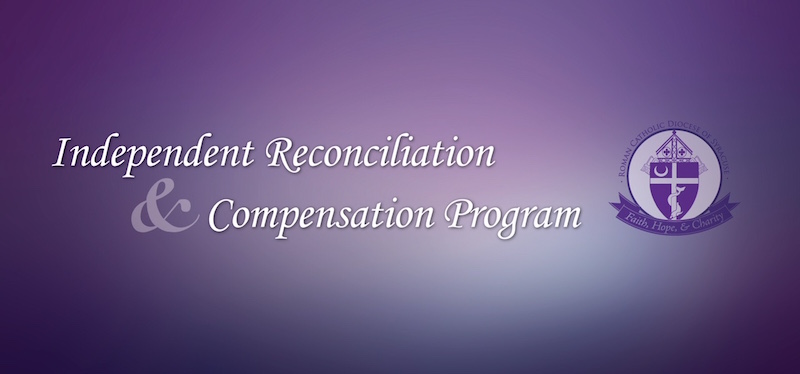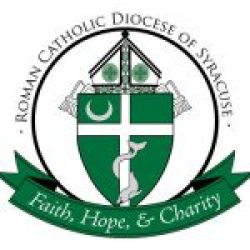By Katherine Long | Editor
Seventy-nine victim-survivors of sexual abuse by clergy have settled their claims and received compensation totaling $10,922,500 through the Diocese of Syracuse’s Independent Reconciliation and Compensation Program (IRCP), the diocese has announced.
“Although no amount of money can heal the wounds of child sexual abuse, the IRCP was designed to publicly acknowledge the mistakes made by the Church in the past and to offer victims a tangible sign of the Church’s desire for healing and reconciliation,” the diocese stated in a final report on the program.
The report outlines the program’s results:
Total number of claims: 88
Total number of cases resolved: 79
Number of ineligible: 3
Number of non-responses: 4
Number of those who declined: 2
Compensation costs: $10,922,500
Administrative costs: $1,570,593
Total costs: $12,493,093
The diocese acknowledged that “while it was not expected that all participants accept the determinations made, many victim-survivors expressed gratitude for the opportunity to be heard,” noting one individual used his $5,000 settlement to have special Masses offered in every parish of the diocese and to stock two Catholic Charities food pantries in Binghamton and Endicott.
The independent, voluntary program was launched Ash Wednesday, Feb. 14, 2018. Kenneth Feinberg and Camille Biros, who have administered similar programs for dioceses in and outside New York State, served as the program’s administrators. The administrators “retained complete and sole discretion over all eligibility agreements and the settlement compensation amounts offered for eligible individuals,” the report said.
Program protocol required all claimants to “have an attorney review and sign off on the compensation offer before acceptance. Once the individual was satisfied with the compensation offered, he/she signed a release waiving rights to litigate against the Diocese of Syracuse,” the report states.
Victim-survivors who had previously notified the diocese of their abuse by diocesan clergy were invited to participate in the program and submit a claim. At the program’s launch, 76 individuals had been invited to submit a claim; Biros at the time also noted that the administrators had about 50 additional allegations, put forward to the diocese by someone other than the claimant, but would not reach out unless the claimant contacted the program. Claims through the program were to be accepted until May 16, 2018.
The program was extended, however. The IRCP closed in December, according to diocesan Chancellor and Director of Communications Danielle Cummings, and “was extended to give some victim-survivors time to work with their attorneys and settle personal legal matters.”
The cost of the program was paid from the Diocese of Syracuse’s self-insurance general liability program; parishes pay premiums to the diocese for their insurance coverage. IRCP costs are also outlined in the diocese’s 2018 financial report. “Beyond the insurance fund, the diocese did not use monies given by the faithful to support parishes, schools, the annual HOPE Appeal, the Foundation of the Roman Catholic Diocese, the Cathedral Restoration Fund, Catholic Charities or any other charitable fund in the diocese,” the diocese said in its report. Determinations of future agreements and compensation with credible victim-survivors will made on a case by case basis, the report also notes.
The report acknowledges that “although this concludes the IRCP program, there is more to do” and urges individuals who have been abused to report the allegation to the local district attorney and the diocese’s victim assistance coordinator. It also highlights the steps the local Church has taken since 2002 to respond to and combat child sexual abuse, including
- a comprehensive Child and Youth Protection Policy that applies to all clergy, religious, employees, and those volunteers whose ministry puts them in regular contact with children, young people and vulnerable adults;
- a Safe Environment Program that requires training, education and criminal background checks of clergy, religious, employees, and volunteers whose ministry places them in regular contact with children, which must be renewed every five years; a Code of Conduct; and prevention and educational programs for children in the Catholic Schools and Faith Formation classes;
- an Office of Victim Assistance to provide support and services to individuals who may have been sexually abused by a member of the clergy or other members of the diocese;
- a Memorandum of Understanding with the District Attorneys of the seven counties of the diocese which states that all allegations will be reported to the appropriate District Attorney before the diocese begins its canonical process;
- a Diocesan Review Board made up of well-qualified lay professionals and a member of the clergy to oversee investigations into allegations of clergy sexual abuse of a minor once the District Attorney’s Office has completed its review.







